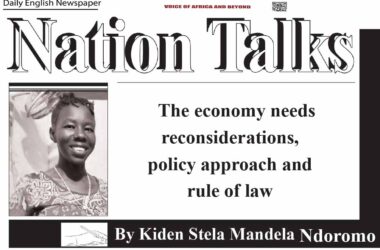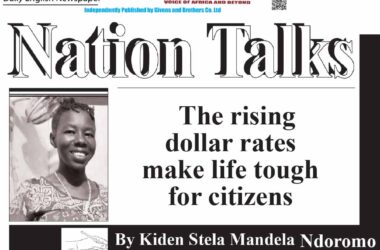WHY MEETING THE EAC OBLIGATION IS A CHALLENGE
By Kiden Stela Mandela
In 2016, South Sudan joined East African Community (EAC); a club of countries to share common market to enhance their economies. The move opened South Sudan to benefit from the projects carried out under the East African Community. But the young nation joined the community when it was, and is weak both economically and politically. In its domestic settings, the country has not done a lot for its citizens in terms of development, fighting poverty, building sustainable peace, and production of goods and services. This is because the services were not prioritized since the attainment of the 2005 Comprehensive Peace Agreement; and after the 2011 independence from Sudan.
It is a normal circumstance for a country to join an organization or to establish relations with another country if the relations foster the interests of the two countries. And it is supposed to be on mutual ground not that, one is cheated or lack bargaining tools to harvest more consensuses hence accept the ties while in weak position. South Sudan went to negotiate with the East African Community without having strong economy and political stability, including production of basic industrial goods and services. This placed the country at the disadvantage at the negotiation table with a group of countries (East African Community) that have good economies, and have relative peace. The East African Community is a trade agreement where a country may join to expand its market for goods and services, and with a vision and mission of political, cultural, social, and economic integration.
South Sudan is not exporting any goods to the East African markets because there are no infant industries to produce goods for export, and for domestic consumption. The country’s foreign reserve is low, and its currency is the weakest in any transaction with the foreign countries. As such, meeting arrears for the East African Community has become a problem which threatens its membership to the bloc. The MPs representing the country at the East African Community parliament have raised complains that they are missing discussions, decisions and negotiations because of lack of payment of membership arrears. And this will add to the missing of the projects South Sudan is supposed to gain from. The sustainability of the membership fees is hard because the country did not meet the domestic preparations to join the bloc. And other EAC member countries have leverage over South Sudan.
Here we as a country stand to lose a lot; we have no trade revenues into our economy that come from the bloc’s market because of lack of our exports there. And yet they earn billions of dollars annually through their exports into our country. We don’t have private sector investments in their countries but they have theirs here in terms of banks, and other companies including their citizens working in different institutions, and capacities. And we have a burden of paying membership arrears in millions of dollars.
For our nation to have equal footing, we need to work hard to stabilize our country both politically, and economically and invest in private sectors to spur industrial growth that produce enough goods and services for both domestic consumption and export. And we need to strengthen our governance system to attract direct foreign investments from international investors, and stakeholders otherwise we will continue to lose without any benefit.
God Bless South Sudan.
Be right there!



